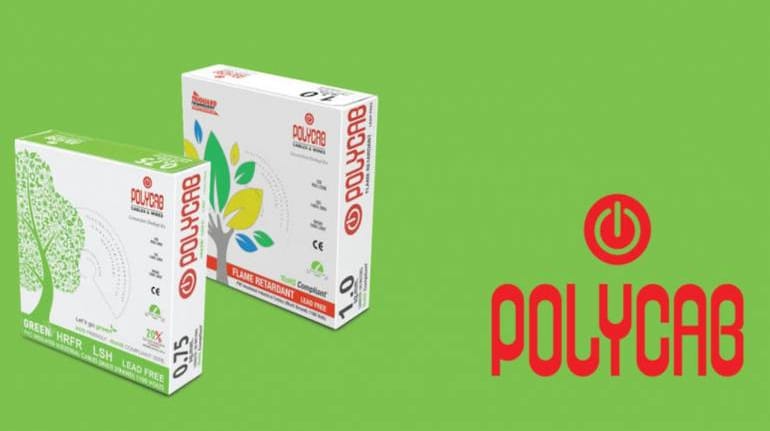



Despite business pressures from the coronavirus outbreak, electrical goods company Polycab posted a 53 percent year-on-year (YoY) growth in its March quarter (Q4) net profit at Rs 215.1 crore.
In an interaction with Moneycontrol, Gandharv Tongia, Chief Financial Officer of Polycab said better margins and lower taxes aided the net profit increase.
For Q4, the revenue fell 15 percent YoY to Rs 2,129.4 crore as the COVID-19 lockdown affected its prime sales period.
However, on an annual basis, there was an improvement in revenue across segments like wires and cables, electrical goods and EPC.
“Our topline grew by 11 percent to Rs 8,830 crore in FY20 which added to the profitability of the company. Margins also improved and tax rate came down from 33 percent to 25 percent,” he added.
The earnings before interest, tax, depreciation and amortisation (EBITDA) margin was at 12.8 percent in FY20, nearly 87 basis points (bps) higher than FY19.
Polycab said margins were boosted by improved sales mix and reduction in expenses. Finance cost came down to Rs 49.5 crore in FY20 compared to Rs 116.7 crore in the year-ago period.
Tongia expects first-quarter sales to be impacted. However, depending on the Coronavirus (COVID-19) situation, the second quarter (Q2) will be better than Q1 and the second half (H2FY21) is expected to be better than the first half.
In its earnings presentation, Polycab said the business was significantly impacted in second half of March 2020 given it is generally a prime sales period for wires and cables business. The company said the estimated consolidated sales shortfall was about Rs 610 crore.
“I believe that the demand in segments like fast-moving electrical goods (FMEG) will pick up. Further, the rural economy is not adversely impacted by COVID by and large and hence the consumption will continue to improve. There is also a pent-up demand like large projects which will start now because large developers and implementing agencies will want to recover the lost time,” he added.
In FY20, Polycab with its consortium partners undertook projects under BharatNet Phase-II in states of Gujarat and Bihar to connect over 4,700 gram panchayats with optical fibre cable in a period of 10 months. As more states are brought in by the government, Tongia said that demand will go up further.
Tongia said the company's Halol factory in Gujarat has been operational for almost a month.
The company is looking at multiple ways of cost optimisation including shifting from large offices to small offices for sales staff to cutting down on expenses like travel, he said.
“The sales staff is mostly on the field. Hence, we are looking at whether the need for them to come to the office on a daily basis can be done away with. Also, we travel a lot but COVID-19 has taught us that meetings can be done over video and hence travelling can be cut down,” he added.
However, Tongia noted that the company is not planning to lay off staff nor is planning to cut pay.
“Overall, our balance sheet is very healthy with Rs 6,000 crore and Rs 4,000 crore of share capital. Hence, we don’t see any challenges as far as liquidity is concerned,” said Tongia.
Discover the latest Business News, Sensex, and Nifty updates. Obtain Personal Finance insights, tax queries, and expert opinions on Moneycontrol or download the Moneycontrol App to stay updated!
Find the best of Al News in one place, specially curated for you every weekend.
Stay on top of the latest tech trends and biggest startup news.